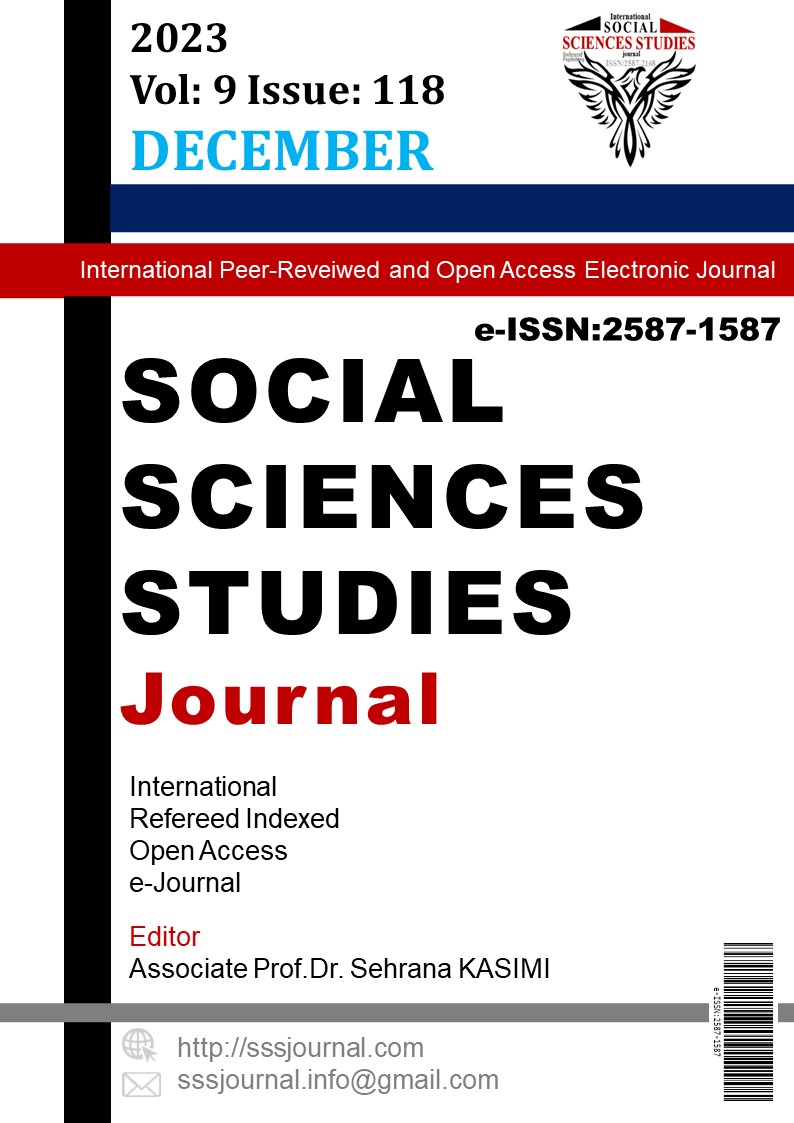Author :
Abstract
Afet, canlı ve cansız çevrede büyük ölçüde can ve mal kaybına yol açan doğal ve beşerî olaylardır. Türkiye hem doğal hem de beşerî nedenlere bağlı olarak yerel ve küresel ölçekte afetler açısından yüksek risk taşıyan ülkelerdendir. Afet risklerini azaltmanın en önemli yollarından biri eğitimdir. Bu nedenle Türkiye’de temel ve orta öğretim düzeyindeki öğretim programlarında afetlerin yerinin tespit edilmesi amaçlanmıştır. Çalışma doküman incelemesi yöntemi ile gerçekleştirilmiştir. Bu kapsamda, temel eğitimde altı, orta öğretimde dört ve özel eğitim ve rehberlik kapsamında bir ders olmak üzere toplam 11 dersin öğretim programları afetler açısından incelenmiştir. Programlarda yer alan afetlerin ders kitaplarında içerik olarak nasıl işlendiğini değerlendirmek için de bu derslerde okutulan 23 ders kitabı değerlendirilmiştir. Araştırmada, halen okullarda uygulanmakta olan güncel temel eğitim ve orta öğretim programlarındaki afet türleriyle ilişkili kazanım, hedef, tema/öğrenme alanı/üniteler dersler bazında belirlenmiştir. Sonraki süreçte afetlerle ilişkili kazanımların beceri ve kök değerlerle eşleştirilip eşleştirilmediği ele alınmış ve ilgili dersin kitaplarında bu içeriklere nasıl yer verildiği tespit edilmeye çalışılmıştır. Elde edilen bulgulara dayalı olarak temel eğitimdeki programlarda afetlere ön hazırlık niteliğinde temel bilgilere yer verildiği, orta öğretim düzeyinde ise sadece coğrafya ders programında afetlere detaylı ve kapsamlı yer verilirken aynı zamanda kazanımların beceri ve kök değerlerle eşleştiği tespit edilmiştir. Özel eğitim ve rehberlik kapsamındaki derste çok basit düzeyde bilgiler verildiği saptanmıştır. Öğretim programı ve ders kitaplarında beşerî afet türlerine daha fazla yer verilmesi, afet, risk ve tehlike kavramları arasında bağ kurulması önerilir.
Keywords
Abstract
Türkiye is one of the countries having a higher risk in terms of disasters both in local and global scales based on natural and man-made reasons. One of the most important ways to reduce disaster risks is education. For that reason, it was aimed to determine the place of disasters in basic and secondary education level curricula in Türkiye. In this sense, the curricula of 11 courses in total, six in basic education, four in secondary education and one in special education and guidance, were investigated in terms of disasters. In order to evaluate how disasters taking place in the curricula were taught in the coursebooks, 23 coursebooks taught in these courses were investigated. In the study, the learning outcomes, objectives, themes/learning fields/units regarding the types of disasters in the current basic and secondary education curricula applied actively at schools were determined based on courses. In the following process, whether the learning outcomes regarding disasters matched up with skill and root values were examined and how these contents were given place in the coursebooks were tried to be determined. Depending on the findings it was found that basic information was given place regarding disasters in preliminary senses in the basic education curricula, both natural and man-made disasters were given place in the secondary education level, while a detailed place was given to disasters only in geography curriculum, the outcomes matched up with the skill and root values and that very simple information was given in the content of special education and guidance. It is recommended that more places should be given to man-made disaster types in the curricula and coursebooks, and a connection should be made between the concepts of disaster, risk and danger.





